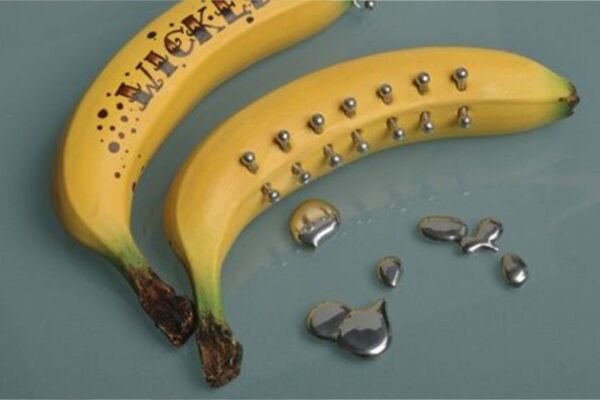Remember in 2018 when American Reality TV star and influencer Blac Chyna came to Nigeria to promote bleaching cream in collaboration with popular skin whitening advocate, Dencia? Many Nigerians took to social media to express their displeasure at the $250 per bottle cream. Many don’t understand that skin bleaching is a lucrative business in Africa and Asia where there are more dark-skinned people.
The subject of skin bleaching has been a subject of discussion for years. Most condemn the act for its obvious risks, while many patronise peddlers like Dencia and Bobrisky in secret. You will be surprised by how much money these people make from selling skin bleaching creams. But that’s a story for another day. For now, let’s take a look at the meaning of skin bleaching.
What is skin bleaching?
Healthline defines skin bleaching as using products to lighten dark areas of the skin or achieve an overall lighter complexion. The products are bleaching creams, soaps, and pills. Other methods of skin bleaching include professional treatments like chemical peels and laser therapy.
Skin bleaching is common in Africa and Asia, where dark-skinned people are most populated. Dark-skinned people have more melanin, a pigment produced by cells called melanocytes that is responsible for the color of the skin. The amount of melanin is determined by genetics. Other determinants are hormones, sunlight, and certain chemicals.
So when you use bleaching products that contain a large amount of hydroquinone, it decreases the number of melanocytes in your skin. The result is you have a lighter skin colour.
ALSO READ: Why drug abuse constitutes menace to society; how to tackle it
Skin bleaching in Nigeria
A 2011 report by the World Health Organization revealed that 77 percent of Nigerian women use skin-lightening products. Nigeria has struggled with the issue of colorism, where being light-skinned is a beauty standard as well as higher status and superiority. Also, media representations and lack of awareness among the populace have contributed to the rise of skin bleaching in Nigeria.
It’s very common to see many Nigerian men preferring to date light-skinned women. Hence, dark-skinned people feel left out, and some of them resort to bleaching their skin to be socially acceptable.
Unconfirmed report shows that bleaching creams sell as much as N200, 000 per bottle in Lagos alone, depending on the brand and method of application. The most disturbing part is that most users now go around with confusing skin colours. The knuckles, knee caps, and elbows often contrast with the rest of their bodies.
Some of the so-called organic products use bleaching components to “tone” the skin. A lot of the producers are not even certified Estheticians and Dermatologists. All they know is that if they mix A with B with a little dash of C, it will “glow” the skin. In addition, some use glutathione pills and injections to achieve their desired skin complexion.
Whichever way you want to see it, skin bleaching has become an epidemic in Nigeria, which is increasingly being accepted as a normal way of life of the people.
ALSO READ: Causes, effects and how to cope with an unplanned pregnancy
Side effects of skin bleaching

There is no benefit in bleaching your skin. Results are not guaranteed, and you can end up with serious side effects and complications. The side effects of skin bleaching are:
Mercury poisoning
A lot of bleaching creams have been linked with mercury toxicity. Mercury is a toxic metal that comes in different forms within the environment. It can be found in small amounts in food such as seafood. However, large amounts of mercury in the body are toxic. Most bleaching creams contain mercury in large amounts, and constantly using these creams can lead to complications such as numbness, high blood pressure, fatigue, sensitivity to light tremors, memory loss, irritability, and kidney failure.
Dermatitis
Dermatitis is a skin disorder that is caused by contact with certain substances. Bleaching creams and other skin bleaching products contain substances that the body may be allergic to. Dermatitis symptoms may be mild or severe, including skin redness, blisters, ulcers, hives, dry, scaly skin, swelling, itching, burning, and tenderness.
Skin cancer
Melanin is a natural pigmentation that protects the skin from the harsh rays of sunlight. This is why people with albinism and Caucasians who don’t have a lot of melanin are at more risk of developing cancer. By bleaching your skin, you reduce the amount of melanin in your body, exposing yourself to the risk of skin cancer.
Exogenous ochronosis (EO)
Exogenous ochronosis is a skin disorder that causes blue-black pigmentation. This is how you usually spot people who bleach their skins. They develop a confusing colour of skin. EO usually occurs due to the long-term use of skin bleaching creams containing hydroquinone.
ALSO READ: Blue balls: Facts and fiction
Steroid acne
Steroid acne usually occurs when people use bleaching creams that contain corticosteroids. The acne mostly affects the chest but also shows up on the back, arms, and other body parts, especially if you’ve been using the bleaching cream for a long time. Symptoms include whiteheads and blackheads, small red bumps, large, painful red lumps, and acne scars.
Nephrotic syndrome
If you know anyone suffering from kidney failure due to skin bleaching, the person probably has nephrotic syndrome. Nephrotic syndrome is a kidney disorder often caused by damage to the blood vessels in the kidneys responsible for filtering waste and excess water. As earlier stated, many skin bleaching creams have too much mercury, which has been linked with nephrotic syndrome. It causes the body to excrete too much protein in your urine. Symptoms include swelling around the eyes, swollen feet and ankles, foamy urine, loss of appetite, and fatigue.
Conclusion

Bleaching your skin may look good at the early stage. But as you age, you will begin to understand what you have done to yourself. Your skin will start to deteriorate, and people will be irritated when they look at you. If that is the only side effect you have, you’re lucky. A lot of users have died from kidney diseases and cancer. All you have to do is visit a cancer ward to understand how terrible it is. This is why dermatologists should work closely with NAFDAC to curb this menace before it becomes more catastrophic.
ALSO READ: Causes, disadvantages and solutions to indecent dressing in Nigeria









